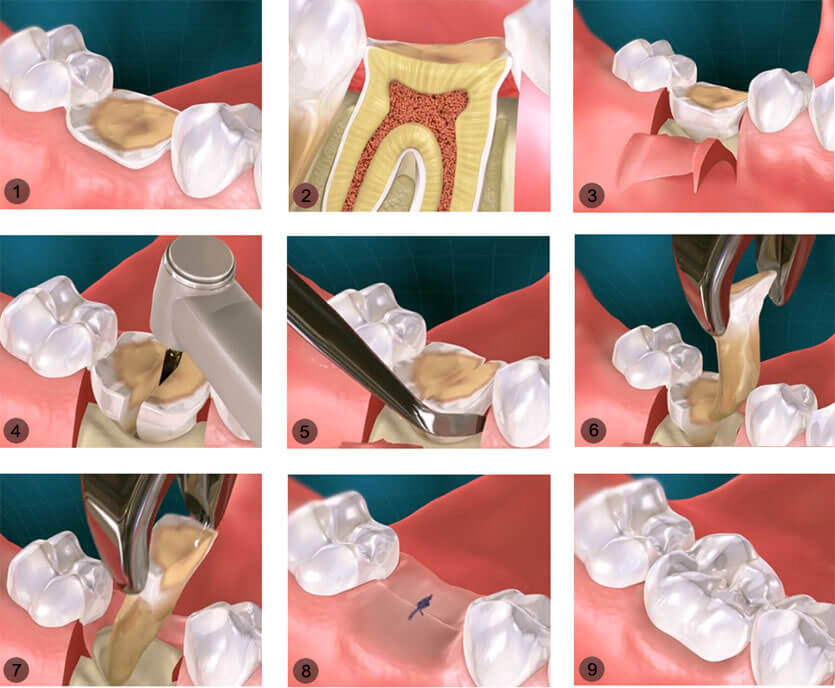Table of contents
Tooth extraction procedure involves pulling a tooth right from its socket in your jaw bone. In some instances, the extraction of a tooth is necessary for an emergency. While tooth removal is a rare instance and definitely the exception to the norm, there are numerous different scenarios that can lead to emergency tooth extraction. There are many different reasons you may need to have a tooth pulled, including:
A number of steps lead up to the dental extraction procedure. More steps are needed if your procedure involves wisdom tooth extraction. If you’re concerned about the procedure itself, talk to your family dentist, who’s always concerned with your comfort and general well-being.

Prior to the actual procedure, your dentist takes x-rays of your teeth and may even have you take antibiotics to prevent tooth extraction infections, especially if you have a weak immune system. During the procedure, you have the option for anesthesia. It’s often highly recommended for impacted wisdom teeth extraction. The two types of extractions you may experience include:
Wisdom teeth are most commonly extracted just before or immediately after they come in, which usually happens between the ages of 17 and 20. The need for wisdom teeth extraction is usually because they have a tendency to become decayed and cause a lot of pain in your mouth. Impacted wisdom teeth don’t break through your gums. They can lead to the development of a cyst or an infection. All four wisdom teeth are usually taken out during the same visit.
Impacted wisdom teeth and diseased or severely decayed teeth are two common reasons for a tooth removal. When a tooth is broken or just mildly decayed, your dentist may be able to fill a cavity, perform a root canal or provide you with a crown instead of pulling it. But sometimes the damage is too severe and the tooth needs to go.
Other instances when you may need to have teeth extracted include:
Although there are a variety of different reasons for needing a teeth extraction, your dentist can recommend the safest and healthiest resolutions to treat your problem. Trust your family dentist in Brooklyn to do the right thing to protect your oral health.
Gum disease is a common reason for tooth removal, as it can severely damage or loosen a tooth so it cannot be saved.
In this case, you will receive a local anesthetic to numb the area where the tooth is located, but we can supply stronger sedation if you need more than one teeth removed or if you are nervous or anxious.
The actual procedure to remove the tooth is generally very quick, and after it has been extracted you might have a few stitches. You’ll need to gently bite down on a clean piece of gauze immediately after the extraction to help stop the bleeding.
There’s a likelihood of mild to severe pain following surgery; however, your dentist can recommend the best post-procedure treatment options to control it. Some common home remedies for teeth extractions include ice packs held to your face to reduce swelling, as well as gentle salt water rinsing. Be sure to start out eating soft, cool foods for a few days after the procedure. You can eat and drink other foods and beverages when you start to feel more comfortable.
If there is swelling, severe pain, or bleeding several days after the extraction, you may have developed a tooth extraction infection. Be sure to follow the complete instructions given to you by your dentist to prevent a dental extraction infection from occurring. Contact your dentist immediately if your symptoms don’t go away. Tooth extraction infections can be dangerous, cause severe pain and even lead to more serious consequences.
Do you have any questions about the tooth extraction, wisdom teeth removal procedure? For more information or to schedule an appointment with the best dentist in Brooklyn Dr. Khabensky DDS of Family Cosmetic & Implants Dentistry, please contact our Brooklyn cosmetic dental office.